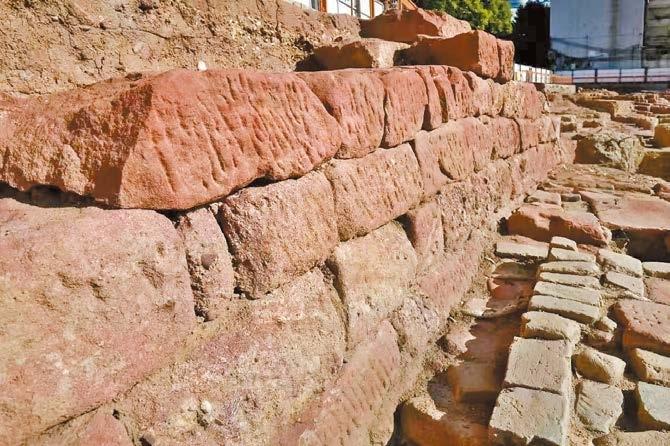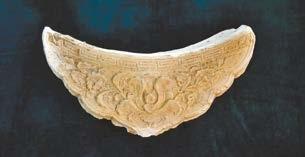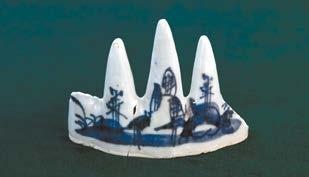



A WALLED city of over 600 years old has been unearthed in Dongguan, South China’s Guangdong Province, shedding light on the South China Sea coastal defense strategy at that time. The site is identified as the Nanhaiwei, the core walled city of Guangdong’s three-tiered coastal defense system, which served dual roles as a military command hub and an outpost during the Ming Dynasty (1368-1644). It is strategically located at the intersection of Xizheng Road and East Canal Second Road in Dongguan, and covers an area of about 15,000 square meters. Besides the two city wall sections about 100 meters long and 7.6 meters thick, urban facilities such as roads, drains, building bases and wells have also been discovered, as well as a large number of building components and household items, said Cao Jin, director of the Guangdong Provincial Institute of Cultural Relics and Archaeology, at a press conference last week. The excavation work, which lasted from May to December last year, covered an area of 3,000 square meters, and is the largest single archaeological excavation project in Guangdong in recent years. The richness of cultural relics uncovered from this site spans from the Song Dynasty (960-1279) to the early 20th century. The archaeological team revealed remnants of the Ming and Qing (1644-1911) eras, including city wall foundations and associated infrastructure. Additionally, the excavation yielded an impressive collection of over 360 small artifacts and 90 boxes containing broken pottery and items, including ceramic pieces from renowned kilns. The site confirms Dongguan’s important position as the “first gateway of Guangdong” in the military coastal defense system existing during the Ming Dynasty, while revealing the spatial layout and construction regulations of coastal defense walled cities in that period, Cao said. Dongguan will implement effective protection measures and plan the construction of an archaeological park at the site, ensuring that this crucial piece of history is maintained for future generations to study and appreciate, according to Chen Zhijun, deputy secretary-general of the Dongguan city government. (Xinhua, SD News) | 
